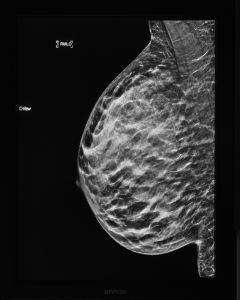October 19, 2020
October 19, 2020
 Medical Director of Medical Oncology Alys Malcolm, MD, answers some commonly asked questions about breast health and breast cancer early detection and prevention.
Medical Director of Medical Oncology Alys Malcolm, MD, answers some commonly asked questions about breast health and breast cancer early detection and prevention.
1. Why is it important to talk about early detection of breast cancer?
October is Breast Cancer Awareness month. As a yearly observance, this is a chance for us to remind ourselves – and those we love – about breast cancer.
It is important to talk about screening for breast cancer because it may be possible to catch the cancer at an earliest stage when more treatment options are available and when a cure could be possible.
2. Who should be screened for breast cancer?
The American Medical Association and National Cancer Institute recommend annual mammograms for women starting at age 40.
3. How often should people be screened for breast cancer?
 It is recommended that women ages 40-44 should have a choice to start annual breast cancer screening. Women age 45-54 should get mammograms every year. Women 55 and older could switch to mammograms every 2 years or continue yearly screening. Screening should continue as long as a woman is in good health and is expected to live 10 more years or longer. Discuss your specific situation with your medical provider.
It is recommended that women ages 40-44 should have a choice to start annual breast cancer screening. Women age 45-54 should get mammograms every year. Women 55 and older could switch to mammograms every 2 years or continue yearly screening. Screening should continue as long as a woman is in good health and is expected to live 10 more years or longer. Discuss your specific situation with your medical provider.
4. How common is it for women in their 30s to develop breast cancer?
Breast cancer can strike at any age; five to seven % of breast cancer cases occur in women under 40 years of age.
5. If someone is seeing a medical oncologist for a breast cancer diagnosis, what questions should they ask?
People typically ask these questions:
- What type of cancer do I have; what is the stage of the cancer?
- Will I need other tests done before treatment can be decided?
- What other providers will be involved in my care?
- Is this cancer hereditary: should I get genetic testing for myself and my family?
- How will the treatment affect me?
- What would the goals of treatment be?
- If I am concerned about the costs and insurance coverage for my treatment, who can help me?
- Should I take part in clinical trials and research?
Your medical oncologist will work with you to answer your questions and to explain next steps. There are also other professionals as part of your team who are resources, such as nurse navigators, social workers and nutritionists.
6. How does breast cancer spread?
Breast cancer cells can multiply, move and spread through the lymph or blood vessels to other areas of the body. If breast cancer cells begin to grow in another body part, this is called metastasis. Breast cancer is most likely to metastasize to the lymph nodes, lungs, and bones, but may also spread to other parts of the body.
7. What treatments options are available for breast cancer?
Breast cancer is treated in several ways. It depends on the kind of breast cancer and how far it has spread. People with breast cancer often get more than one kind of treatment. Surgery, radiation therapy, chemotherapy, hormonal therapy, and biological therapies are some of the options. Medical providers from different specialties often work together to treat breast cancer.

